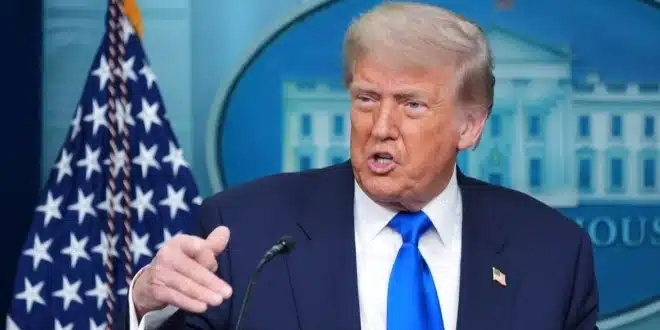The United States has moved to significantly reduce economic sanctions on Syria, following an executive order signed by President Donald Trump on Monday. The decision marks a notable shift in U.S. foreign policy and follows through on a commitment Trump made to Syria’s interim leader, Ahmed al-Sharaa, during a meeting in Saudi Arabia earlier this year.
White House officials described the executive order as a step toward facilitating Syria’s reintegration into the global financial system. According to Treasury officials, the new directive is intended to support Syria’s progress toward peace and economic recovery after more than a decade of conflict. The order also terminates a national emergency declared under a 2004 directive issued by then-President George W. Bush, which had cited Syria’s military presence in Lebanon and its pursuit of weapons of mass destruction.
In addition to the national emergency, five earlier executive orders targeting Syria were also rescinded. These actions follow the U.S. Treasury’s decision in May to grant Syria broad exemptions from sanctions, laying the groundwork for more comprehensive changes this week.
However, the rollback does not extend to sanctions against individuals connected to former Syrian President Bashar al-Assad. Measures targeting Assad, members of his regime, and others involved in alleged human rights violations, drug trafficking, and chemical weapons programs remain in force. The administration also reaffirmed that existing congressional sanctions under the Caesar Syria Civilian Protection Act continue to apply. These sanctions penalize entities that support Syrian military or intelligence operations and can only be removed through legislative action.
Diplomatic Implications and International Coordination
Trump’s policy shift comes in the context of a broader re-engagement with Syria. His administration has expressed an intention to encourage regional and international investment in the country. The White House emphasized that Syria’s economic rehabilitation would depend on increased access to global markets and the removal of barriers to international commerce.
Despite the rollback of economic penalties, Syria continues to be listed by the U.S. government as a state sponsor of terrorism. Furthermore, the organization led by interim President al-Sharaa remains designated as a foreign terrorist entity. A State Department spokesperson confirmed that these designations are under active review, although no immediate changes have been made.
Notably, while the U.S. has taken the lead in easing restrictions, the European Union has also begun lifting most of its remaining sanctions on Syria. This parallel movement suggests a coordinated international effort to reestablish diplomatic and economic relations with the country after years of isolation.
Restrictions still apply to actors involved in the production and trade of Captagon, a synthetic stimulant associated with regional drug trafficking networks. Sanctions against known terrorist groups operating in and around Syria are also unaffected by the latest executive order.
The executive order was signed privately and subsequently published on the social media platform X. While no press was present during the signing, the administration has framed the action as part of a broader strategy to stabilize Syria and fulfill long-standing diplomatic commitments.


